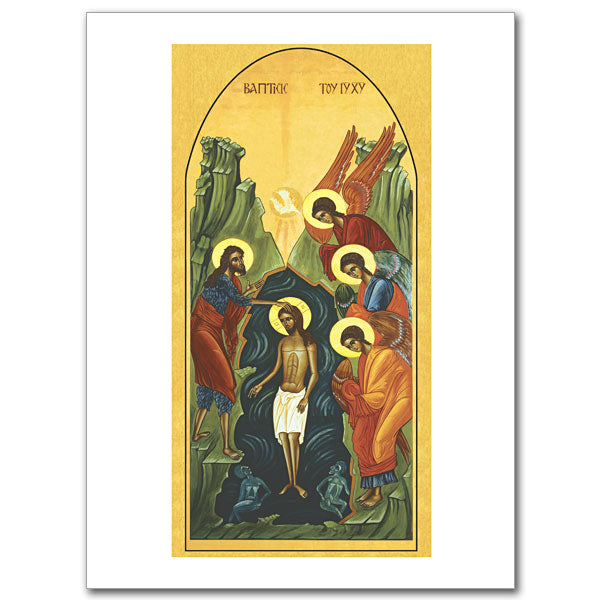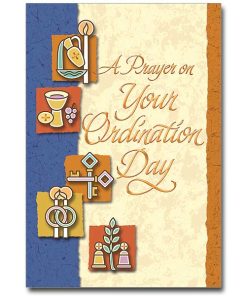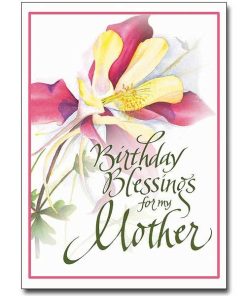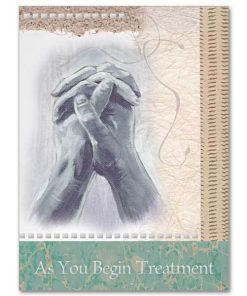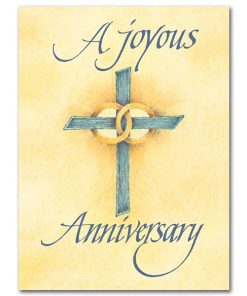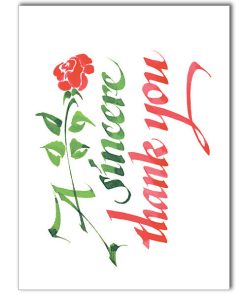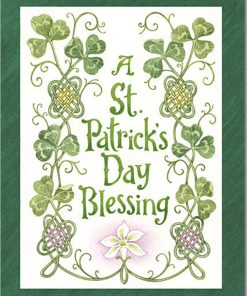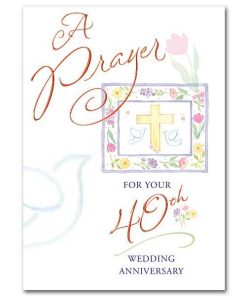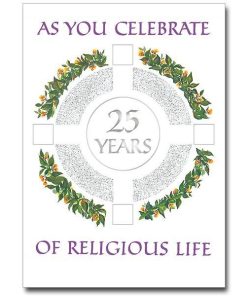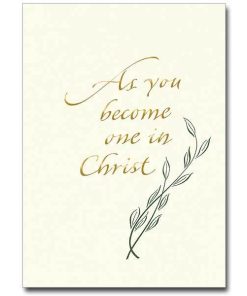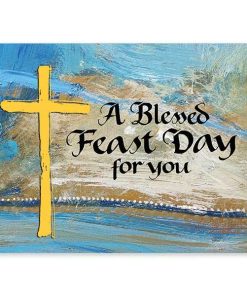The Baptism of Christ Greeting Card PH
$ 5,99 $ 3,59
Inside Text:
Blank inside.
Bible Verse:
Matthew 3:17b
“This is my Son, the Beloved, with whom I am well pleased.”
Item Details:
“Then Jesus came from Galilee to John at the Jordan, to be baptized by him. (Matthew 3:13) This icon is also called the “Theophany,” a word that means “manifestation of God.” The occasion is important because it marks the first manifestation of the Trinity in the Gospel and instituted the sacrament of membership in the Christian Community.
Icon greeting cards are single-fold cards printed on heavy stock, 4.38″ x 5.93″. The cards are blank inside for your own message or custom imprint and have an explanation of the history and symbolism of the icon printed on the back.
Image Origins
Commemoration of the Baptism of Christ is an ancient tradition in the church. Icons for each major feast day in the Liturgical Calendar have been produced since the earliest days of the Byzantine era. The image Sister Marie-Paul used in this version follows closely the ancient prototypes, although it is unusually tall and narrow, adjusted to fit the space needs of the church that commissioned the original (Holy Redeemer Lutheran Church in Jerusalem). This event is described in all four Gospels (Matthew 3:13-17, Mark 1:9-11, Luke 3:21-22, and John 1:29-34).
Theology and Symbolism
The Baptism of Christ has two aspects of great importance to all Christians. First, it was the occasion on which the Trinity was revealed to us. The Spirit descended from Heaven like a dove, the Son bowed His head in submission to receive the water from John the Baptist, and the voice of the Father spoke: “This is my Son, the Beloved, with whom I am well pleased” (Matthew 3:17). Second, while performing the act of ritual cleansing prescribed by Jewish ritual, Christ established the New Testament sacrament of Baptism as a sign of membership in His church. John the Baptist officiates at the ceremony, his right hand upon Jesus’ head and his left raised in prayer. An Orthodox hymn expresses what John may have felt. “…I do not dare to hold Thy most pure head; sanctify Thou me, O Lord, by Thy divine manifestation.” John is dressed in camel skins (Matthew 1:6) but also wears a red robe symbolic of his priestly role in the scene. Christ stands in the midst of the Jordan, head bowed in submission, right hand extended in the ancient gesture of blessing; index finger extended, middle and little fingers curved, ring finger and thumb crossed forming “ICXC,” the Greek monogram of Jesus Christ. A white cloth girds his loins, white becoming from this moment the symbol of membership in His church. His halo, iconographic symbol of sanctity, is inscribed with a cross and the Greek letters omega, omicron, and nu. They spell “ho on,” which translates as “Who Am,” the words used to name God in Exodus 3:14. The waters of the Jordan appear dark and threatening. To the ancient Jews, water was a symbol of death. Jesus immerses Himself in the water as a sign of His death and burial (see Romans 6:3). The blessing of his hand is conferred on the water, transforming it into a symbol of birth into the new life of Christ. Two spirits are visible in the water, the male on the right is an allegory of the Jordan while the female on the left represents the Red Sea. These remind us of two Old Testament prefigurations of baptism, a passing through water into new life; the dividing of the Jordan by Elisha (2nd Kings 2:14), and the dividing of the Red Sea by Moses (Exodus 14:16-21). The Holy Spirit descends in the form of a dove, recalling another Old Testament story. Noah’s dove appeared to announce the end of the Flood and the return of life to the world (Genesis 8:11). Here, the Holy Spirit announces the remission of sins and God’s mercy toward His people. Three angels stand on the right bank, hands covered by their robes in the ancient Byzantine mark of special respect. They are absent in the Gospel stories of the Baptism, although in each Gospel account, the Baptism is followed by the Temptation in the Desert, and angels minister to Jesus at the conclusion of the forty days (e.g. Matthew 4:11). By their postures they help focus the viewer’s attention on Christ.
Fast Shipping and professional packaging
Through our long-term relationship in a long-standing partnership with UPS, FedEx, DHL and many other leading global carriers, we are able to offer a variety of shipping options. Our warehouse staff are highly trained and will pack your products in accordance with our exact and accurate specifications. Before they are shipped your items will be thoroughly examined and secured. We ship to thousands of customers each day from multiple countries. This shows our commitment to becoming the biggest retailer online in the world. The distribution centers and warehouses distribution are located in Europe, as well as the USA.
Note: Orders containing more than one item will be assigned a different processing time for each item.
Prior to shipment We will examine thoroughly the items you've ordered. Today, the majority orders will be delivered within 48 hours. The delivery time varies between 3-7 days.
Returns
The inventory is always changing, and is not completely managed by us because of the involvement of multiple parties including the factory and our warehouse. The stock can change at any time. Please understand it may happen that your order will be out of stock once your order has been made.
Our policy is valid for a period of 30 days. Unfortunately, if the 30 days have elapsed from the date you purchased the item, we will not be able to offer you a return or exchange.
You are able to return an item if it is unused and still in the same condition when you received it. The item must be in the original packaging.
Related products
Greeting Card
Greeting Card
Greeting Card
Greeting Card
Greeting Card
Greeting Card
Greeting Card
Greeting Card
Greeting Card
Greeting Card
Greeting Card
Greeting Card
Greeting Card
Greeting Card
Greeting Card
Greeting Card
Greeting Card
Greeting Card
Greeting Card
Greeting Card
Greeting Card
Greeting Card
